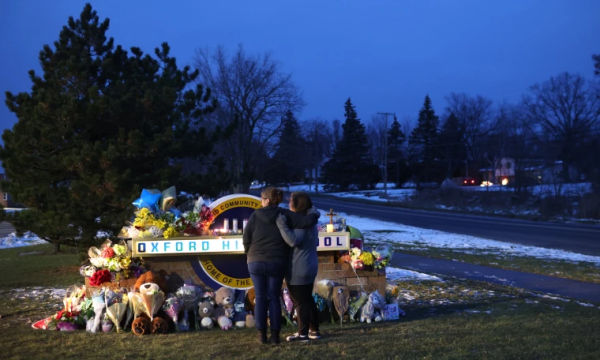James Crumbley, his son in prison for life and his wife awaiting sentencing, faces trial as prosecutors seek to hold him accountable for rampage.
www.freep.com
James Crumbley defense attorney irks prosecutor as jury selection starts
In a tactic that irked the prosecutor, James Crumbley's lawyer asked prospective jurors questions related to the key issues in the historic case that seeks to hold a father responsible for a deadly school shooting carried out by his son.
On the first day of jury selection in Crumbley's involuntary manslaughter trial, defense attorney Mariell Lehman zeroed in on perhaps the most damning allegation in the case: that her client gifted his troubled son a gun — the same weapon the teenager used to murder four students at Oxford High School in 2021.
To attack this narrative, Lehman asked multiple prospective jurors the following questions:
If a parent buys a car for their teenager and tells the child and their friends they just gifted their kid a car, does that mean that the kid really owns it, or the parents? Multiple jurors said they had done just that — gifted their teenagers cars — but they were really the owners, and could take away the keys when they saw fit.
Lehman also focused on mental illness, and asked prospective jurors to consider if it's easy to tell if someone is depressed or suffering from a mental illness, or can people battling such problems, particularly teenagers, hide these things? Multiple people said such illnesses can be hard to see.
Lehman also zeroed in on the issue that has captured international attention: parenting.
She asked 15 prospective jurors sitting in the box how many with kids believe they are perfect parents.
No hands went up.
She also asked how many believed that they as parents, or that their parents, tried their best, even when they made mistakes.
Everyone's hand went up.
Lehman also got into the issue of what it means to intentionally give someone access to something versus passive access. The prosecution has alleged that James Crumbley gave his son easy access to the gun, though the father has denied that, maintaining it was hidden unloaded in an armoire and the bullets were stored in a separate drawer.
So Lehman asked the prospective jurors to weigh in on what it means to give someone access to something, and offer their opinions on what it means to have a gun properly stored.
Answers varied, with a few maintaining a gun should always be locked in a safe, though multiple people said they wouldn't necessarily think a gun was unsafely stored if a person hid it somewhere, and that they would have to know more about it.
It was during this line of questioning about access that Lehman drew the ire of Oakland County Prosecutor Karen McDonald. Lehman asked a prospective juror if a corkscrew was hidden in a drawer in his house, and someone found it and used it to hurt someone, would he consider that him giving access to the corkscrew?
McDonald objected, arguing Lehman was getting too into the details of the case, and that's not appropriate during jury selection.
Lehman argued it was a relevant and fair question, and continued asking it of others, and would irk McDonald again with another line of questioning.
Lehman asked the panel if they could set aside any emotions they may have after seeing troubling images during the trial, like video of the school shooter carrying out his rampage.
She went on to argue that James Crumbley was never inside the building during the shooting, and that what happened during the massacre is not what he's charged with, but that his son was convicted in the murders — not her client.
McDonald shot back that Crumbley in fact was inside the building on the morning before the shooting, when he was summoned over a troubling drawing his son had made of a gun and the words, "The Thoughts won't stop, Help me."
Lehman argued the prosecutor crossed a line in disclosing actual details of the case. The judge cut off the line of questioning.


 www.clickondetroit.com
www.clickondetroit.com














